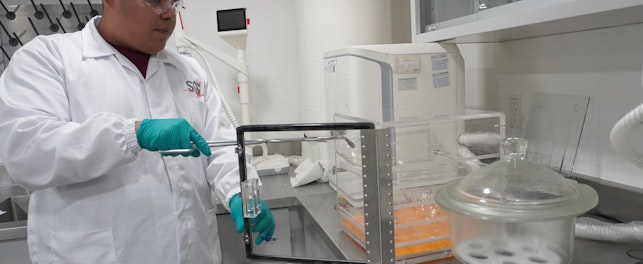The global skincare market is predicted to grow by USD 45.58 billion between 2019 and 2023.i To be successful in such a challenging marketplace dominated by premium brands, manufacturers need to focus on supplying safe, compliant products that deliver on their claims.
What consumers want, when they are choosing a product to put onto their skin, is a simple way to be certain the product will not react negatively on them.
Legal Framework
In this article we will consider this subject using the prism of European Union regulations. Often considered to be one of the globe’s most stringent sets of requirements, cosmetics sold in the EU must comply with Regulation (EC) 1223/2009. In addition, Regulation (EU) No 655/2013 sets out the common criteria for the justification of claims relating to cosmetic products. These have been in force since 2013.
Claims such as “no tears”, “improves the appearance of fine lines and wrinkles”, “skin appears smoother”, “Sun Protection Factor (SPF)”, and “48H efficacy”, must all conform to the common criteria set out in Regulation (EU) No 655/2013. In essence, they must demonstrate:
- Legal compliance
- Truthfulness
- Fairness
- Honesty
- Support informed decision-making
In addition, there must be evidential support for the claims. Best practice in relation to claim substantiation means using either experimental studies, consumer perception tests, published information, or a combination of all these pieces of evidence.
Over the years, several testing strategies have been developed to substantiate the various claims.
Primary Dermal Irritation Test (PDI)
To substantiate claims such as “dermatologist/dermatologically tested” and/or “tolerated by sensitive skin”, manufacturers use the PDI or epicutaneous patch test. This can be performed on a wide variety of cosmetic and personal care products, including skincare products.The test should be conducted on at least 30 subjects and must be structured in a way that is commensurate with the way the product is used. For example, products that have longer exposure to skin are tested occlusively – a plaster is affixed after the application to create a solid barrier. For rinse-off products, a semi-occlusive test is performed – using air and water vapor permeable tape. Negative and positive standard trials are run concurrently using water and 0.5% SDS solution (sodium lauryl sulphate). After 24 hours, the plaster is removed and a further 24 hours later a dermatologist examines the skin for irritation.
Demonstrating Skin Tolerance
To help manufacturers demonstrate the skin tolerance of their products, SGS has developed the ‘Dermatologically Tested: Skin Tolerance” approval mark. Based on the PDI test, the approval mark is awarded exclusively to products that achieve a "very good skin tolerance" or a "good skin tolerance". Available as both an occlusive and semi-occlusive test, depending on the product, the mark is awarded following consideration against the "dermatologically tested" evaluation criteria in the EU publication "Technical Document on Cosmetic Claims". The mark can be awarded to a wide range of cosmetic products, including creams, shower gels, shampoos, perfumes and bath balls.
The ‘Dermatologically Tested: Skin Tolerance” approval mark is just one of several services SGS offers cosmetic and personal care product manufacturers to help them successfully access target markets around the world.
For more information, please contact:
Hubert Brundu
Global Technical Manager
Phone: +33 442616491
REFERENCES:
i Global Cosmetic Skin Care Market 2019-2023
ii Sensitive skin
iii Nach welchen Kriterien wählen Sie in der Regel Ihre Kosmetik- und Körperpflegeprodukte aus?



